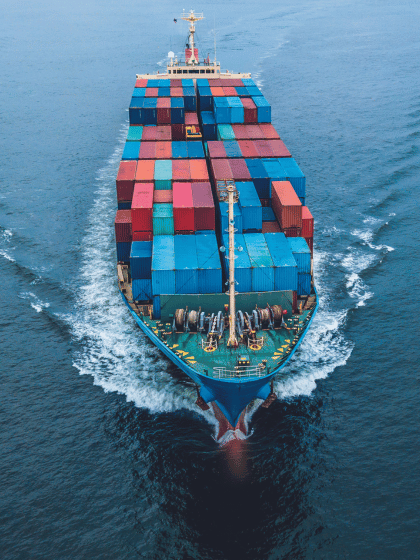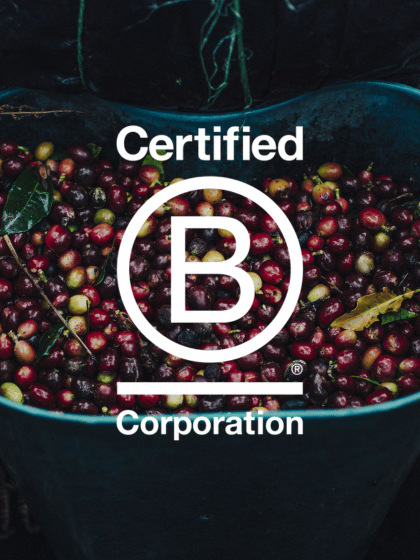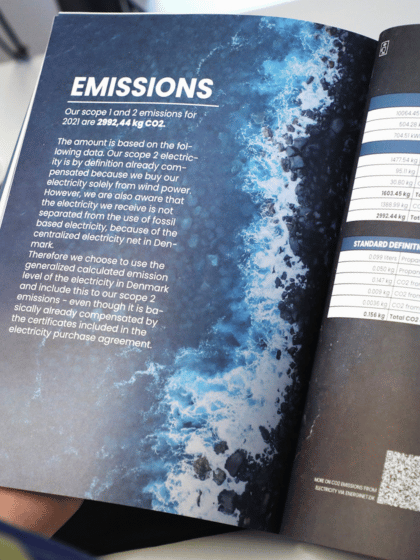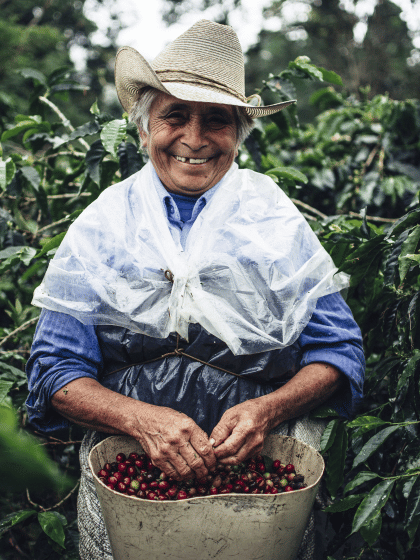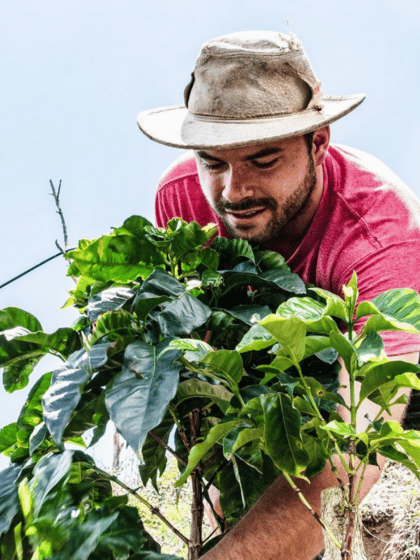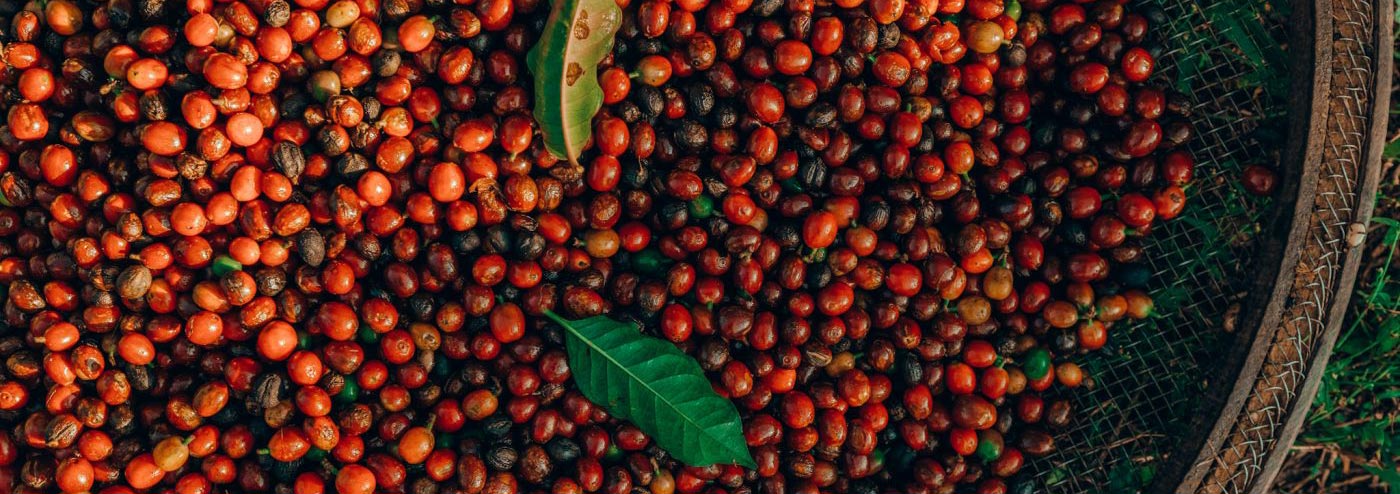
Essential for Accountability
Cooperatives and Cooperation
This year, Denmark reached Earth Overshoot Day on March 16 – that is, Denmark had already used all its natural resources for the year 2024 back in March, and for the rest of the year we have used more resources than the Earth can naturally regenerate.
It is obvious to everyone that we need to rethink how we do business, how we consume and how we can reduce CO2 emissions in all areas. We need to make sure that our ecosystems are taken care of and we need to do it right now.
When it comes to making a real impact on the coffee industry, we believe it's all about meaningful collaboration.
Meaningful collaboration for us is when we agree that great taste goes hand in hand with responsibility – both with regard to the surrounding environment and especially to the people who work on the farms.
Several Cooperatives
The Impact of Not Working Alone
Cooperatives have played an important role in coffee cultivation for decades around the world.
In 2022, the world's largest coffee exporting country, Brazil, had 97 coffee cooperatives, which accounted for 48% of Brazilian coffee production. Most of these coffee cooperatives consist of small producers and family farms.
The development of coffee cooperatives or smaller coffee collectives has changed the way coffee is traded and produced. In most cases, this has significantly given small, independent coffee farmers more influence.
Gathering with like-minded farmers and being part of a cooperative offers many advantages, such as easier access to coffee mills, processing methods and exporting coffee beans.
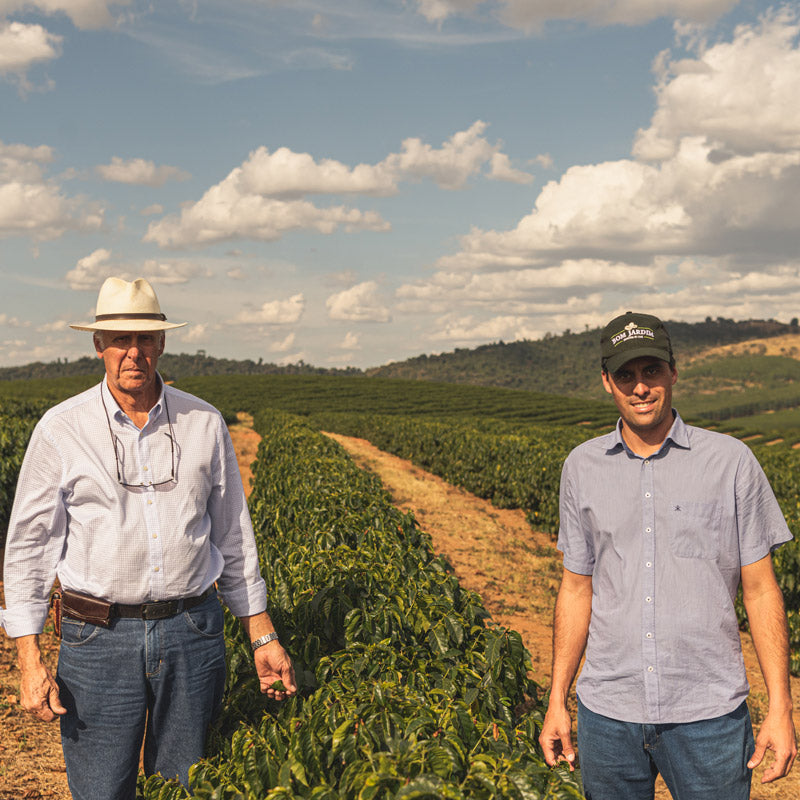
Sharing Facilities
Better Conditions for Coffee Processing
It varies from cooperative to cooperative, but responsibility usually plays an important role in coffee cooperatives both socially and economically, but certainly also environmentally.
The role of cooperatives ranges from obtaining certifications and connecting members directly with buyers to communicating their work and providing educational support and business advice.
Conditions for farmers in cooperatives are typically better than when they were on their own. When they are part of a cooperative, it gives a greater opportunity to sell coffee, as small quantities are more difficult to sell.
Cooperatives also often play a role in working with sustainable agricultural practices and implementing projects that benefit biodiversity and local communities. These projects are usually difficult to initiate and enforce as an independent farmer. For example, it is not easy to become certified organic and it usually takes four years to complete the transition and become certified.


Cooperation Between Cooperatives and Roasteries
Crucial for Sustainable Practices
We choose to be responsible in our practices as a coffee roastery, and we have enjoyed experiencing how the coffee cooperatives we trade with are constantly working to improve various aspects of coffee production.
The aim is to maintain coffee production and at the same time think about food security and economic sustainability for farmers, while working on the conservation of resources such as water, and soil and the conservation of biodiversity.
In fact, studies have shown that the role of cooperatives is crucial in supporting the adoption of sustainable practices. Cooperatives promote collective actions and counteract a skewed balance of power, and thus real sustainability is promoted in the value chains.
Our Example
53,501 Bags of Carbon Neutral Coffee
We have felt a cooperative's influence with our own coffee. The Brazilian coffee, IMPACT No. 01, comes from the coffee cooperative Sancoffee and is carbon neutral according to the Net-Zero Standard.
Sancoffee works actively to reduce the unintended impact of coffee production on the surrounding environment. In fact, they have a positive impact with their coffee production both environmentally and socially.
Sancoffee has been in existence since 2000 and consists of 20 farms and 370 "Beyond Borders" partner producers. The cooperative spans 10 towns and 8368 hectares. Last season they exported 53,501 bags of coffee.
Sancoffee always aims to deliver values and solutions their best partners need and to achieve the goals in an efficient and transparent way.
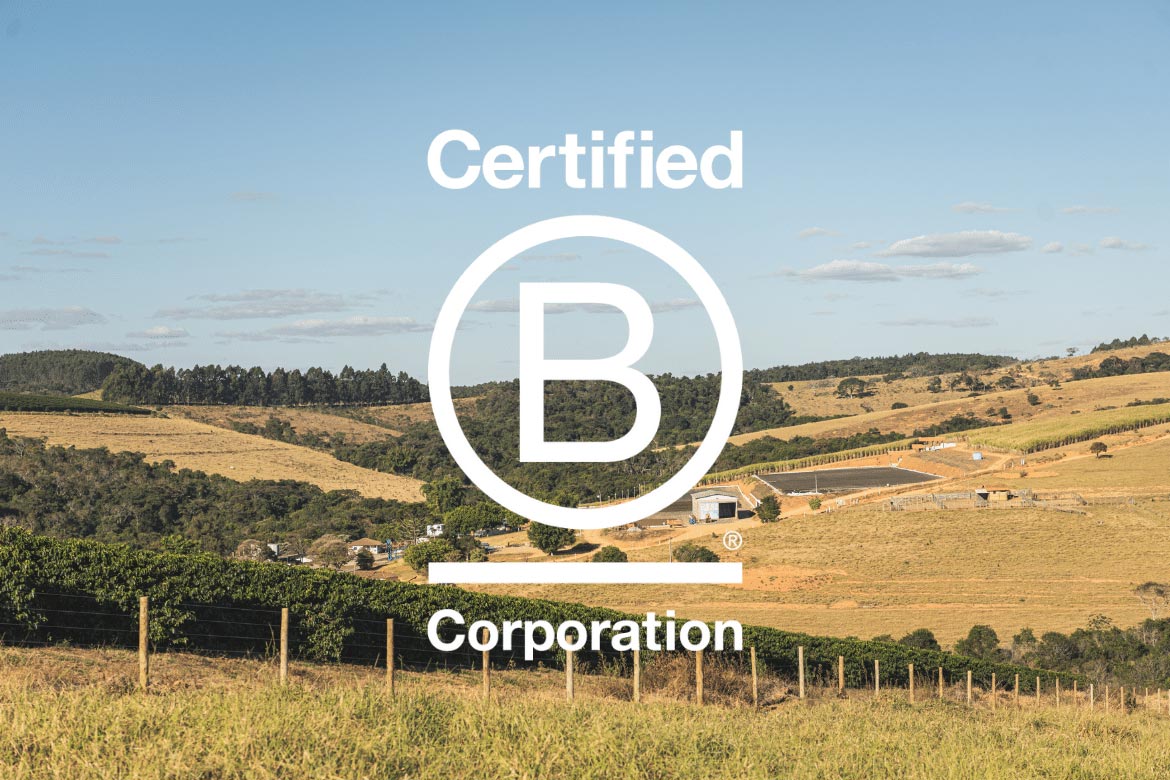
Words to Action
In the past few years, the farmers and employees at Sancoffee have experienced that the coffee industry has been directly affected by severe droughts, hailstorms, frost and storms.
These climate changes have affected the physiological cycle of the coffee plant and thus also its production.
Sancoffee has been a B Corp since 2019 and implements climate projects that include climate footprint, biodiversity and zero waste. They also contribute to community support, including programs such as Beyond Borders and Nascentes, which exist to strengthen the role of women in the coffee industry.
Countering Emissions
Management of Coffee Plantations
In 2020, Sancoffee measured their climate footprint. They managed to become carbon neutral on the farm by offsetting their CO2 emissions from the office and warehouse. The following year, they carried out new climate studies that gave them inspiring results and showed that the two farms in their first studies were indeed carbon neutral.
Since then, Sancoffee has continued to measure climate surveys on not only 2 farms, but on all 20 farms in the cooperative. They found that across the 20 farms they emitted almost 40 thousand tonnes of CO2e.
Fortunately, the emissions are more than neutralised through the initiatives on the farms to remove CO2 from the air. It comes from, among other things, naturally occurring trees, coffee bushes, planted forests, changes in land use and individual trees scattered over the fields. In total, this represents a removal of more than 68 thousand tonnes of CO2e.
These results are simply amazing and show that when coffee landscapes are managed with care and understanding, coffee production does not necessarily have a negative impact on the environment. It can actually be of great benefit to natural environments when coffee farms are aware of and have the necessary resources to preserve natural habitats.
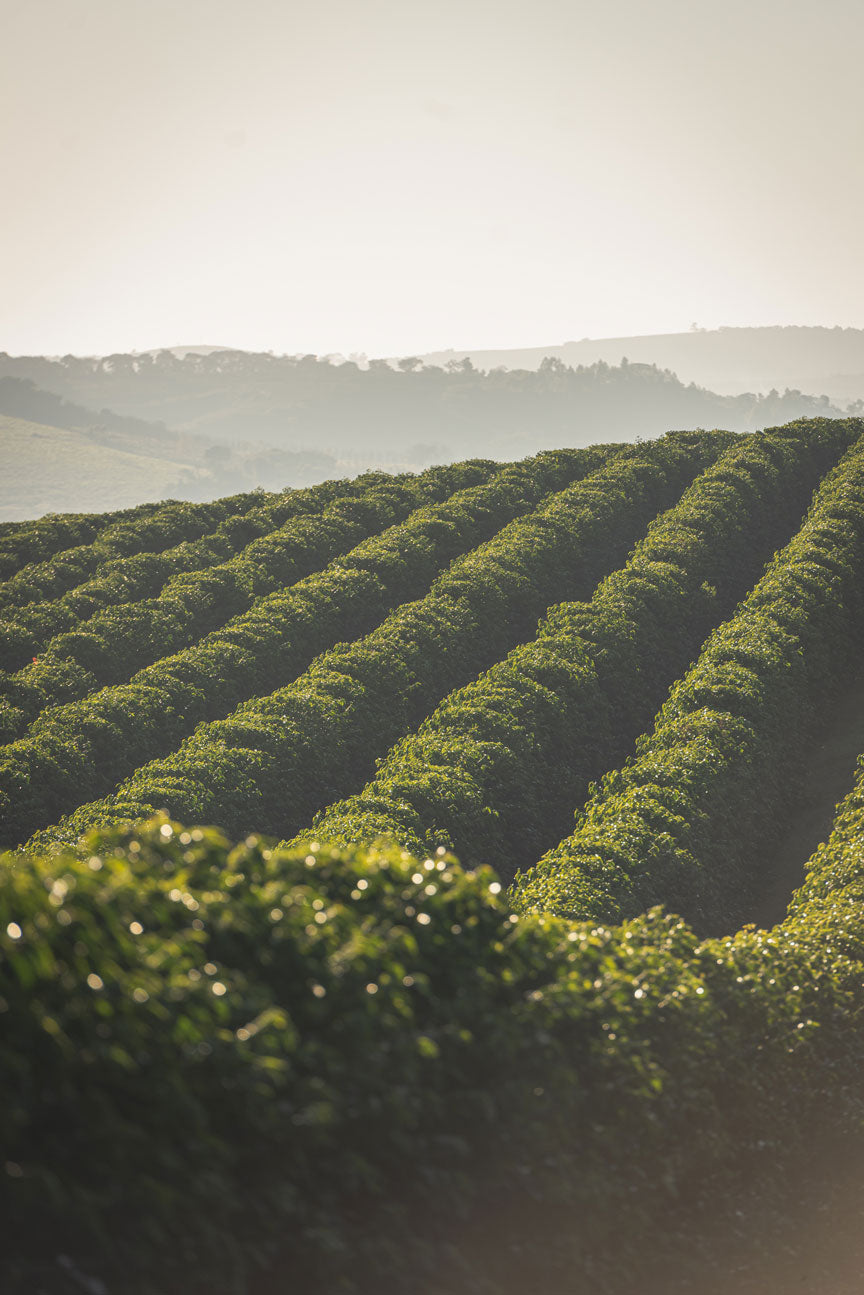
Important Insights
Just like Sancoffee, we strive to translate our words into action.
It is inspiring to work with them, as many of our goals are moving in the same direction. Together, we contribute to the coffee industry with values such as quality and responsibility.
It is important for us not only to look at what we have done and are doing right now, but also to think about what we would like the future of the coffee industry to look like and act accordingly.
The cooperation between coffee cooperatives and roasteries is crucial when it comes to climate projects and climate strategies within the coffee industry.
We all experience the change in weather conditions in our own way due to climate change. But the coffee farmers experience and understand it on a much deeper level, as their work is so closely linked to the soil and the plants.
Therefore, it is important that we listen to their concerns and insights, especially if we want to be able to enjoy coffee in the future.
It works
In recent years, we have calculated our climate footprint, and we will continue the meaningful work in several different parts.
We do this to uphold our part of the agreement to make responsible coffee.
It is necessary to understand the main sources of carbon emissions from the farms when it comes to limiting climate change, in order to secure coffee production in the future. The results at Sancoffee have made them and the farms more sustainable.
It is crucial that we continue our journey with cooperatives like Sancoffee who aim for goals that align with ours in many ways.
Collaboration is key to ensuring real change happens and we can't do it without each other. The example of Sancoffee shows that it is possible to significantly reduce emissions.
Our hope and ambition is that the actions we take in our small corner of the coffee industry will inspire more reflection and action before the global changes become irreversible.
Sancoffee Bio-Recovery
Same Tree – Five Years Apart
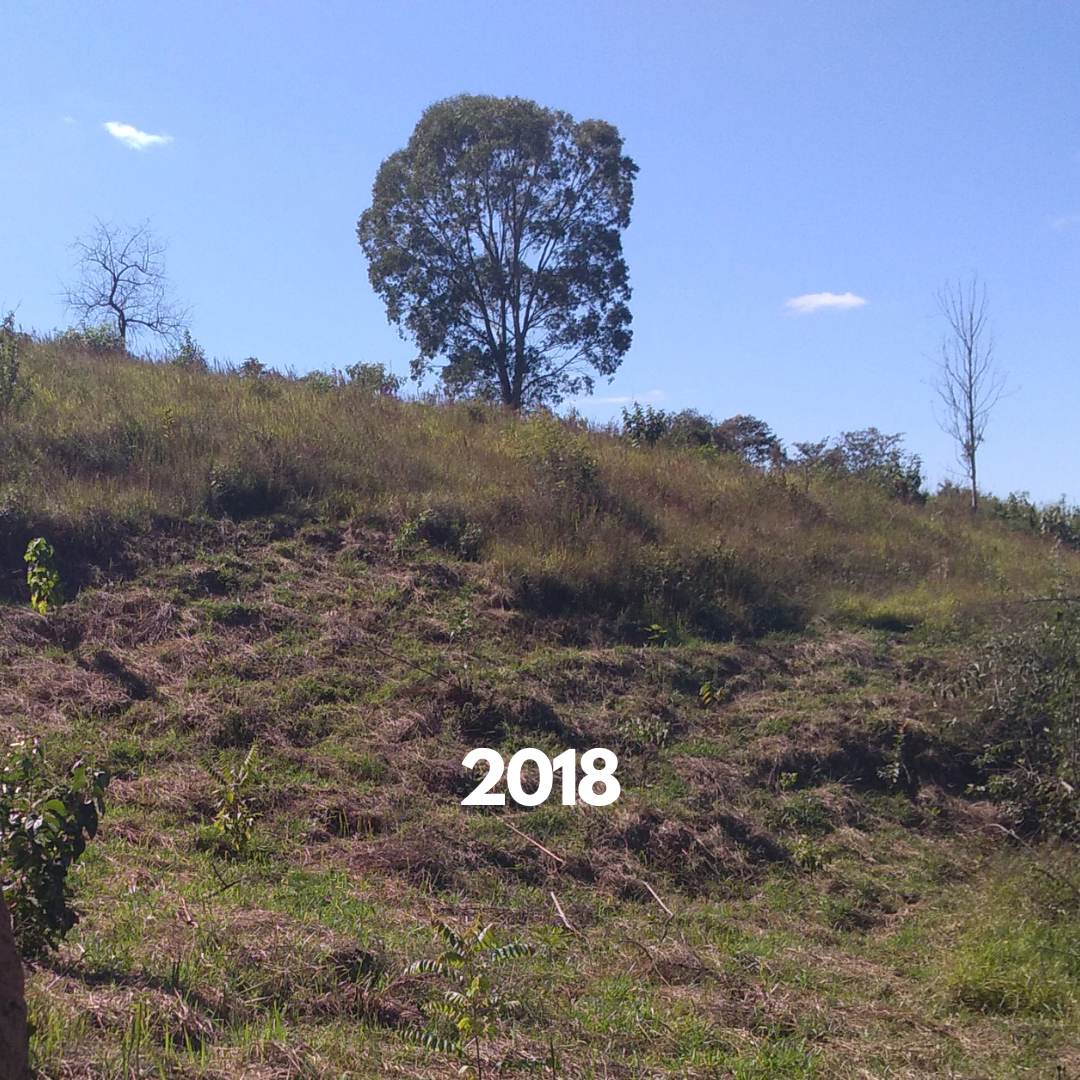
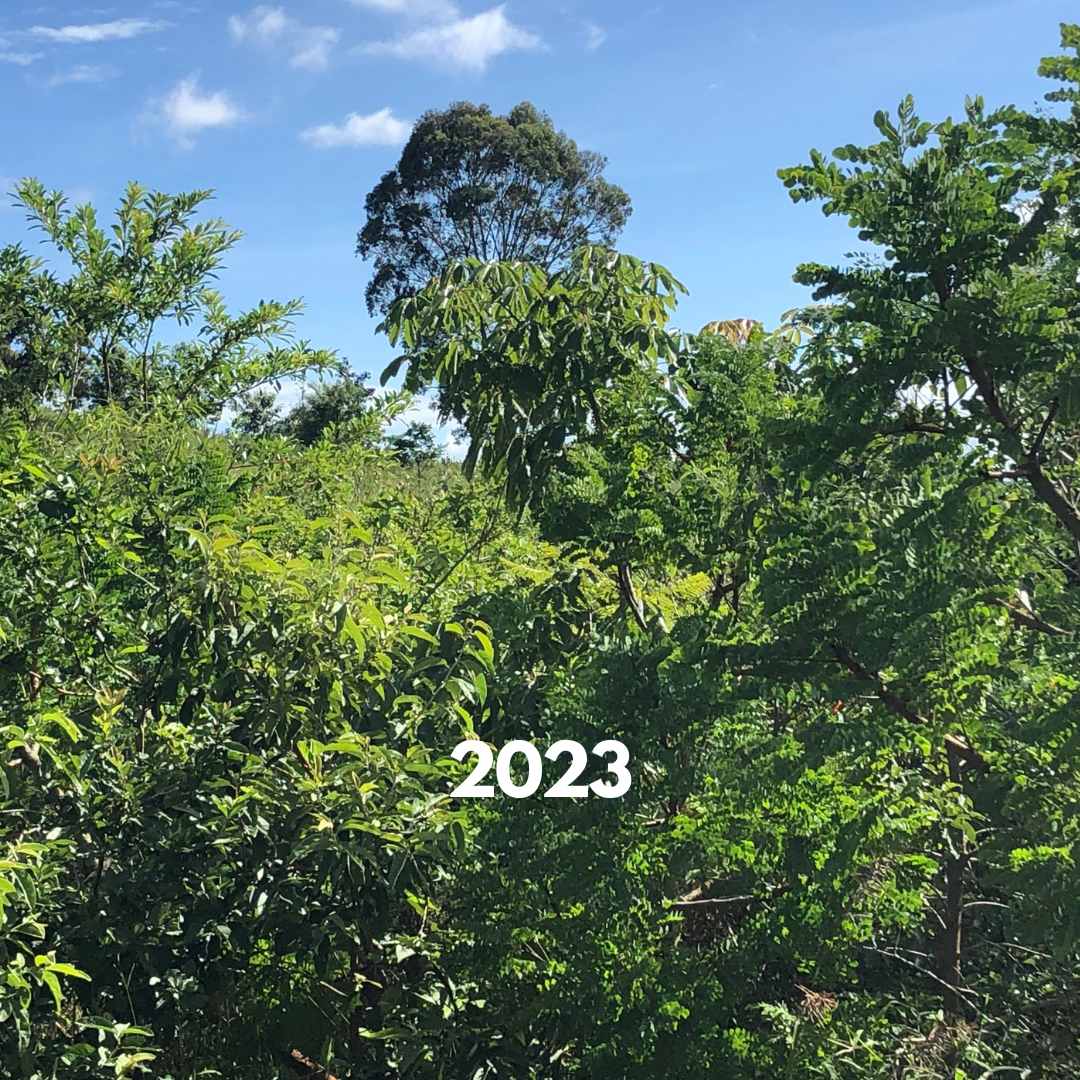
Sources
Sancoffee Impact Report 2022
Rossi Moda, Laleska, et al. 'Brazilian Coffee Sustainability, Production, and Certification'. Sustainable Agricultural Value Chain , IntechOpen, 2022




